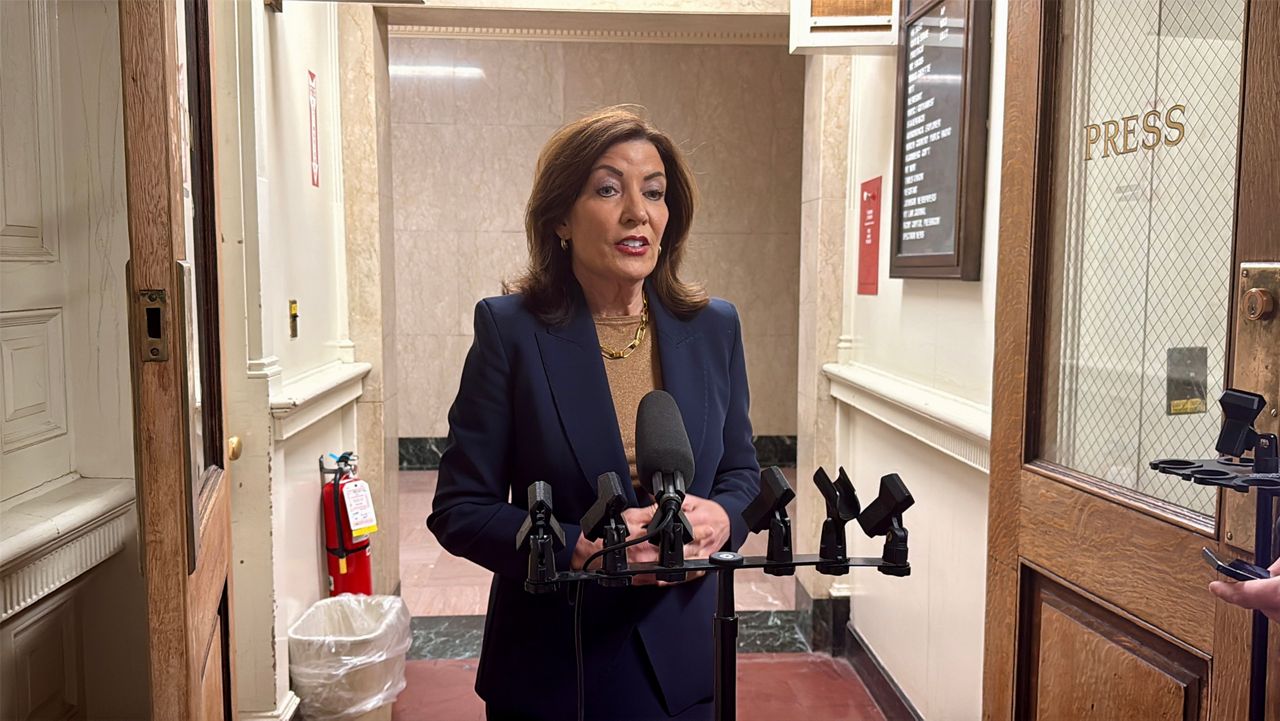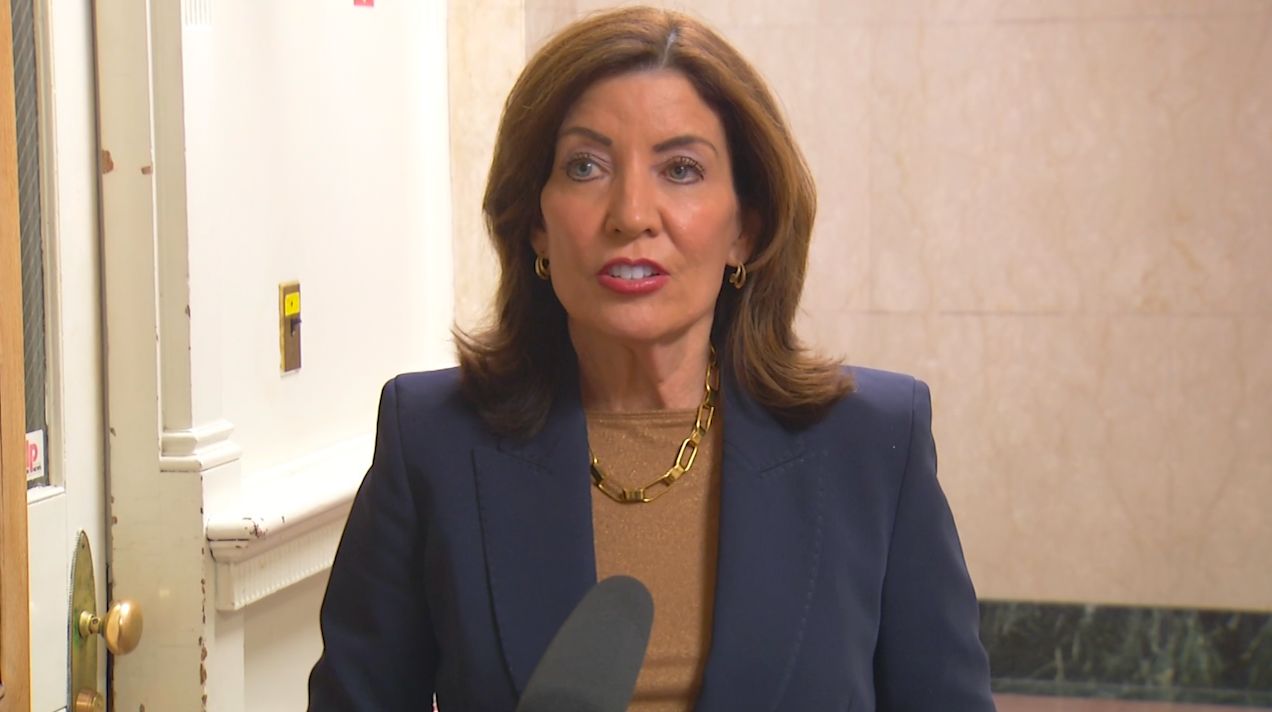Questions have started to swirl about state lawmakers using artificial intelligence to draft legislation this session, and if the Legislature should regulate its use in state business, as lawmakers commence their six-month return to Albany on Wednesday.
Last summer, Queens Assemblyman Clyde Vanel used artificial intelligence to draft housing legislation — drawing mixed reaction from lawmakers. As the 2024 legislative session begins, several legislators have wondered how many bills and public documents will be written using AI this year.
NYPIRG Executive Director Blair Horner expects the Capitol to be inundated with AI-generated research and other documents that impact the public.
"That's going to be the standard that elected officials, lobbyists and others are going to be held to is, even if you get the information, can you prove that it's really accurate?" Horner asked in the Capitol on Tuesday. "That's going to be the hard part."
Gov. Kathy Hochul is expected to include proposals in next week's State of the State address that could direct the conversation about how the state approaches AI this year. The governor's staff met with experts throughout the fall to develop those plans, including a potential task force, to study the issue. But that work could take time lawmakers do not have as the new technology goes unregulated.
Assemblyman Alex Bores, a member of the Science & Technology committee, said AI programs like ChatGPT come with a host of risks and benefits that should be used for primary research, or first drafts of documents. He's wary of problems that will arise if lawmakers completely trust the internet-scanning tool and submit legislation without thoroughly checking its citations and details.
"If it can speed up some of the research process behind it, then perhaps that's useful," Bores said. "If you're getting it to write sort of in your voice without checking it, then you're probably going to run into trouble pretty quickly."
But lawmakers and lobbyists alike are troubled by the potential for artificial intelligence to be used to spread misinformation and create fake propaganda to distort reality during the consequential 2024 election cycle. All seats within the state Legislature are up for reelection in November.
Bores has introduced legislation to mandate for any campaign to disclose the use of AI, and especially generative AI programs.
"If a campaign or other regulated entity is producing content using AI, the public has the right to know that AI was used in order to do that," Bores said. "I'm worried about deceptive advertising, in particular, when it's used for campaigns. ...But more and more, we're going to have to move to a model that isn't detecting what's false, but instead proving what's real."
A similar bill also exists at the federal level.
State lawmakers have also toyed with bills to regulate the use of AI in making employment-related decisions.
But not all New York lawmakers agree it's ethical to use artificial intelligence to draft legislation, and that they will struggle to seriously consider bills written with it.
Senate Judiciary Committee chair Brad Hoylman-Sigal stands adamantly against using AI to write and submit bills that could come to the floor for a vote and impact state policy.
"A statute that may affect millions of New Yorkers would be irresponsible to rely on AI and not one's own experience, observations, concerns from constituents and the impact on the public good," the senator said. "We need to hear from our constituents and we represent the people and the people are not represented by artificial intelligence."
Hoylman-Sigal said the technology may be more cost effective and useful for some shortcuts, but cannot substitute how legislation should be introduced in Albany.
Assembly Speaker Carl Heastie said Tuesday it's the federal government's job to take the lead regulating artificial intelligence and avoid states having 50 different policies across the nation.
Heastie, however, added he is not concerned about lawmakers this session using the rapidly evolving tool to draft legislation as long as staffers properly fact-check the work.
"Some lawmakers use it already," the speaker said. "It still will be humans that are going to determine whether a bill makes it to the floor and passes, ultimately."
Legislative leaders have not discussed their focus for AI this session, including if the Senate or Assembly will implement new rules related to its use
Horner says legislative leaders should consider making rules for lawmakers to be more specific in their bill memoranda and provide exact citations for any claims they make about a bill, including its justification and possible financial implications.
"I think that's going to be the real test for the Legislative Branch: To make sure that the quality of the work not only improves with the use of A-I, but doesn't somehow diminish the public's support for whatever it is they're coming up with," Horner said.
Regardless of where they stand on using the technology in the People's House, officials and advocates say they know the use of the technology is inevitable as it evolves.
"The idea you could use it as a tool makes sense, but I think there's going to be other mechanisms in place to check its validity," Horner said.










